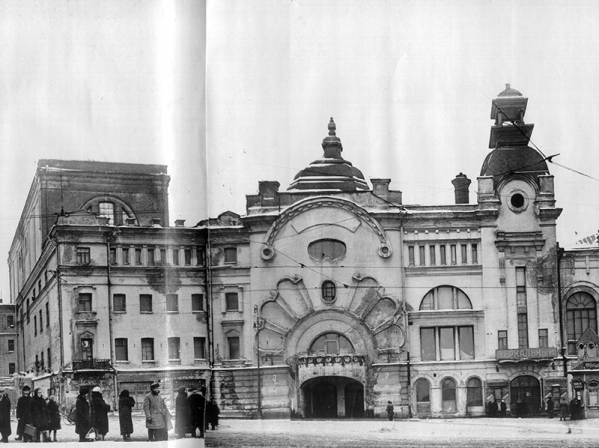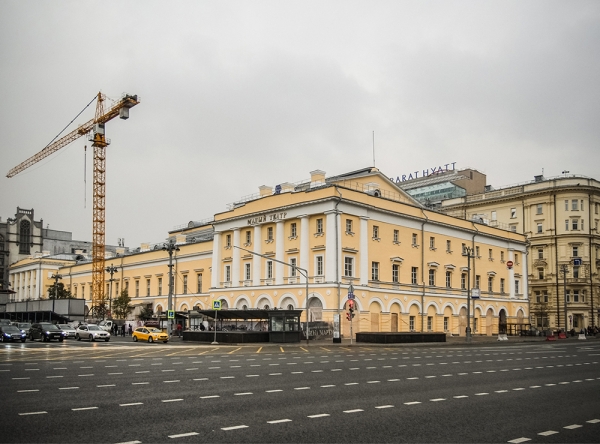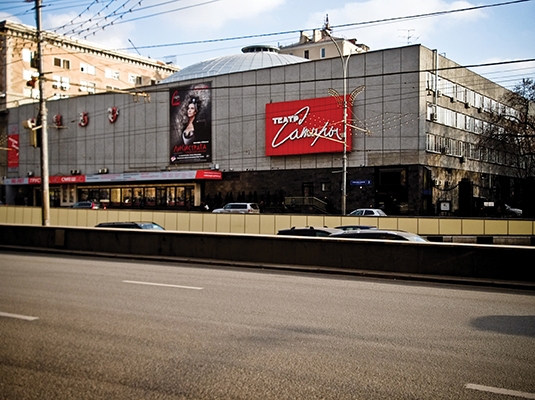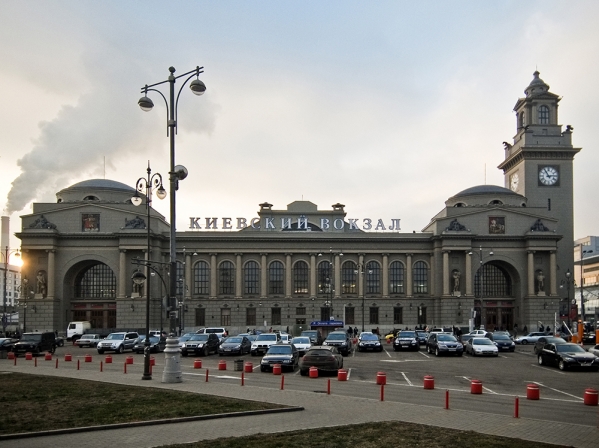The Meyerhold Theatre
4 Triumfalnaya Square
Subway station «Mayakovskaya»
Bulgakov was in the Meyerhold Theatre at the beginning of the winter in 1927 with his second wife L. Belozerskaya at the full dress rehearsal of The Government Inspector. He vehemently disliked the production, as L. Belozerskaya wrote, ‘This unwarranted intrusion into the work distorts the author’s intention’. On 7th February 1927, Bulgakov, contrary to his own principles, came to a widely-discussed dispute at the Meyerhold Theatre: Lyubov Yarovaya – The Days of the Turbins, to see what the hated critic A. Orlinsky had to say. In May 1927, having found out that Bulgakov was writing a new play (The Run), Vsevolod Meyerhold asked him to provide something new for his theatre. Bulgakov declined – the theatrical techniques at the Meyerhold Theatre were too unfamiliar. It should be mentioned that acerbic reviews of the director’s work appeared in Bulgakov’s writing much earlier, at the beginning of the 1920s.
The first mentions of Meyerhold appear in the authobiographical Notes on the Cuffs, and then Bulgakov dedicated a chapter to the director in a series of essays, The Capital City from my Notebook. The ironic Biomechanical Chapter was printed in the newspaper Nakanune in February 1923: ‘In a stripped back, shabby, draughty theatre, instead of scenery, there is a hole (of course there is no trace of a curtain). In the background there is a naked, brick wall with two very small windows. In front of the stage there is a structure in comparison with which, Tatlin’s project could be considered a model of clarity and simplicity.’ Thus Bulgakov described the famous staging of The Magnanimous Cuckold. In the middle of the 1920s, Bulgakov wrote about the director once again in the short novel, The Fatal Eggs: ‘The Theatre of the late Vsevolod Meyehold, who died, as is well-known, in 1927 during the staging of Pushkin’s Boris Godunov when trapezes with naked boyars collapsed, threw out a moving, multi-coloured, electrical signboard’.





